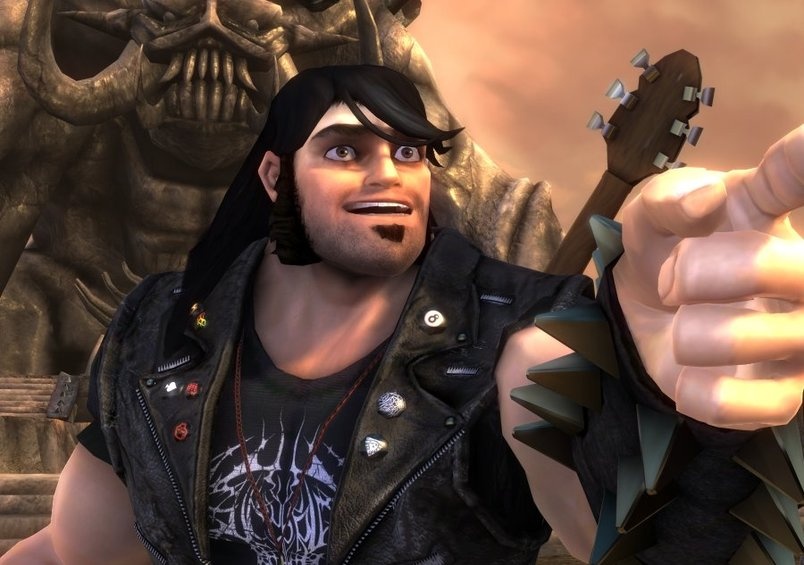 If the banner covering the top of the Los Angeles Convention Center is any indication, Brütal Legend is a big deal. For Activision, which once held the game’s publishing rights, its the subject of a lawsuit.
If the banner covering the top of the Los Angeles Convention Center is any indication, Brütal Legend is a big deal. For Activision, which once held the game’s publishing rights, its the subject of a lawsuit.
The AP reports that Activision is suing Brütal Legend developer Double Fine to “stop the release” of the game. The publisher claims it has sunk roughly $15 million into the project and still has a valid publishing contract.
The issue is, of course, knottier than that. Brütal Legend was part of the line-up Activision dropped during the Activision-Blizzard merger, after it acquired Sierra in 2008. Electronic Arts reportedly took the reins as publisher, and here at E3 the game is a top critical pick.
Starring the vocal talents of Jack Black, Brütal Legend follows a roadie who winds up in a mythical Age of Rock. Tim Schafer, who created The Secret of Monkey Island and Grim Fandango, among other critical darlings, is the game’s creative director.
The game showed a lot of promise in my hands-on time. It’s more action-oriented than Schafer’s classic adventure games, but I’m told that a lot of genres come into play, including the puzzle-solving that put Schafer’s earlier work on the map.
So I’m hoping Activision doesn’t prevail in this lawsuit. When it was rumored in February that Activision would cause trouble, EA offered some fighting words: “We doubt that Activision would try to sue,” the company said. “That would be like a husband abandoning his family and then suing after his wife meets a better looking guy.”
That’s what it looks like from here, with Brütal Legend earning a nomination from IGN for Best of Show. Expect EA to defend its hot property.

 John Madden may have stunned the sports world today by announcing his retirement from broadcasting, but football video game fans shouldn’t be surprised that the Madden game franchise is staying put.
John Madden may have stunned the sports world today by announcing his retirement from broadcasting, but football video game fans shouldn’t be surprised that the Madden game franchise is staying put. Fans of Will Wright probably know about his bizarre hobbies. At times, he’s
Fans of Will Wright probably know about his bizarre hobbies. At times, he’s  Electronic Arts, architects of possibly the biggest Digital Rights Management disaster in PC gaming, are abandoning their wicked ways and going back to a less intrusive copy protection process.
Electronic Arts, architects of possibly the biggest Digital Rights Management disaster in PC gaming, are abandoning their wicked ways and going back to a less intrusive copy protection process. Good news for people who don’t like juggling a half dozen top-shelf video games at the tail end of the year: an Electronic Arts manager says the company might be backing off the holiday release strategy.
Good news for people who don’t like juggling a half dozen top-shelf video games at the tail end of the year: an Electronic Arts manager says the company might be backing off the holiday release strategy. My, how Spore is multiplying.
My, how Spore is multiplying.